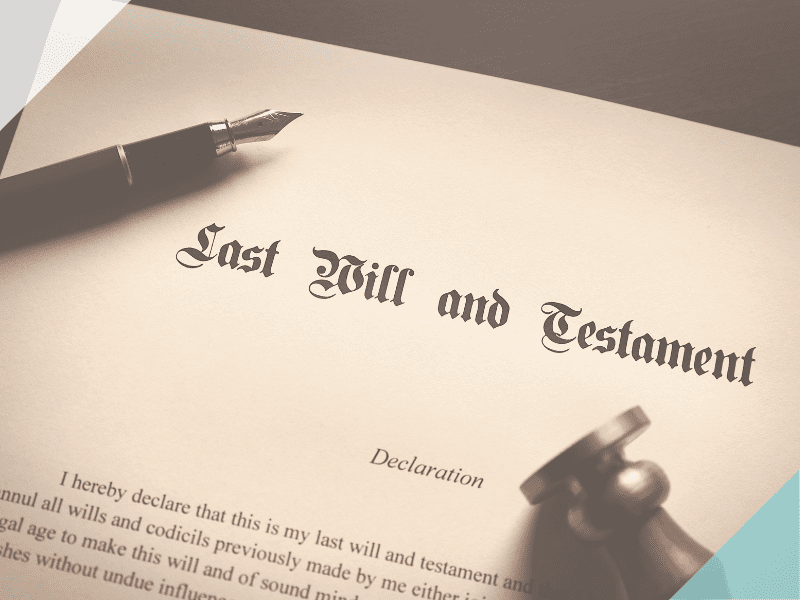Contentious Probate
Our dedicated team can help you with any aspect of contentious probate. They provide straightforward and sympathetic legal advice and communicate in plain English.
Our friendly lawyers are experts in this field and will work diligently to ensure that you get the best possible legal support and advice for your individual situation.
We are proud to be a jargon-free firm that can support you with a whole range of services surrounding contentious probate, from conveyancing to inheritance tax and capital gains tax advice.
Contesting a Will
If you want to contest a Will, it is best to seek legal advice as soon as possible as some claims can be subject to strict time limits. Our efficient team offers strong advice and can let you know the likelihood of your claim being successful.

Who can contest a Will?
How you can contest a Will
You can contest a Will in two different ways. You can contest the Will’s validity or alternatively, some category of claimants can make a claim against the estate under the Inheritance (Provision for Family and Dependants) Act 1975 if they have not had reasonable provision made for them.
Will Validity
When contesting a Will’s validity, you can make the claim based on several different factors.
Testamentary capacity: If the testator (the person that made the will) did not have good mental capacity at the time they made the Will, then this could render it invalid.
Undue influence: Where a testator was pressured into making a specific Will, the gift from this Will can be taken away from the person that pressured the testator.
This is more likely to be successful where the individual is suffering from a lack of sufficient mental capacity or significant health problems which may impact their judgment. To be successful in this type of claim, it needs to be demonstrated that someone has forced or pressured the testator to make the Will they made, as persuasion alone is legal.
Want of approval and knowledge: This is questioning whether the testator and fully understood and accepted the Will and its details when signing it. For example if the testator was deaf or blind when signing it this would be unlawful.
Lack of due execution: Making a claim on the grounds of lack of due execution means questioning if the Will was signed and witnessed properly. If it was not done properly this will render it invalid.
Forgery: It can be claimed that the signature on the Will that was made by the testator was actually forged by someone else making the Will invalid.
Fraudulent calumny: Here the testator could have been talked into excluding someone from the will under false pretences which renders the Will invalid.
Who will be doing my work?
Reasonable Provision Claims
We have two competing laws in this country. One says that a person can do what they want with their estate. This is known as testamentary freedom.
However the Inheritance (Provision for Family and Dependants) Act 1975 says that certain category of people can challenge an otherwise valid will if they have not had “reasonable provision” made for them.
The categories of people that can apply are:
- The deceased’s spouse or civil partner
- an unmarried partner who lived with the deceased for two years or more prior to their death
- A child, or adopted child of the deceased
- A person who had been treated as a child of the deceased (often a step-child)
- Anyone who was financially dependent upon the deceased
You can make a reasonable provision claim whether a person left a will or whether the estate is being dealt with under the intestacy rules.
Whatever your situation, it is always best to discuss the matter with a specialist lawyer to give yourself the best chance of your claim being successful.
Email Contentious Probate specialist, Edward Powell or call 01206 766 333.
Contentious Probate Dispute Claim Example
I was recently instructed by a beneficiary of a circa £20 million estate who had concerns regarding the executor of the estate’s conduct.
A beneficiary whose potential inheritance was placed into a discretionary trust instructed me to assist them.
An executor instructed me when there was a challenge to expenses that were incurred by his estate.
I successfully challenged the validity of a will in a multimillion-pound estate where there were allegations of fraud. Expert computer evidence and the Claimant’s medical records proved the Will could not have been executed as claimed.
I acted for an adult son who successfully challenged his father’s will on the basis that it did not make reasonable provision for him.
Although taking court action may be necessary, I focus on trying to resolve a dispute, and helping understand the personal and family dynamics of a situation can often help me advise on the best outcome for my client and find the best way to achieve it.





